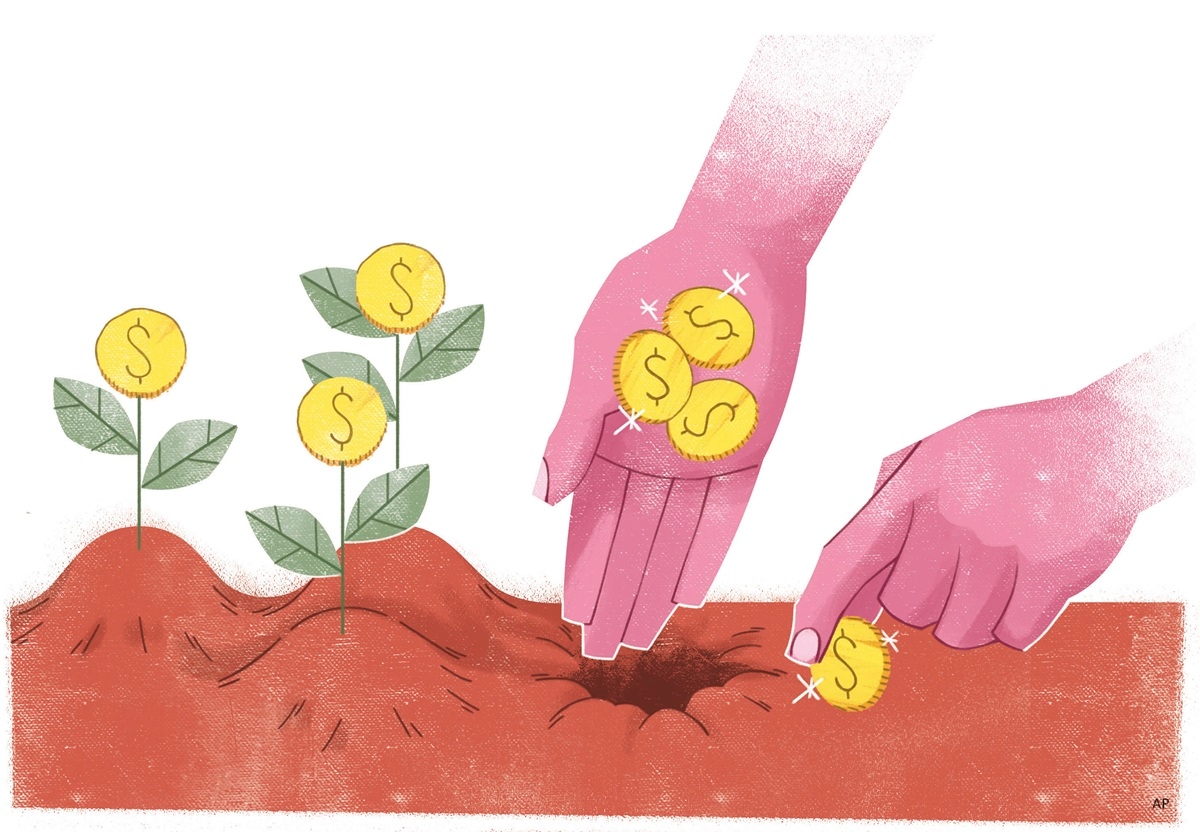
Meme stocks are making a comeback, expanding beyond the well-known GameStop and AMC Entertainment, the favourites among short sellers.
Much like the intense meme stock mania of 2021, the current excitement was sparked by a meticulously planned short-squeeze, leading to a temporary surge in prices for heavily shorted stocks, with some experiencing triple-digit gains. However, as is typical, this rally quickly lost momentum after a few days when trader enthusiasm fizzled, causing meme stocks to plummet as rapidly as they rose.
Long-term investors should avoid speculative short bets and focus on stocks with strong fundamentals. These stocks within Morningstar's coverage universe offer reliable portfolio growth compared to volatile meme stocks that often leave investors holding the bag.
Low-price retail giant Walmart offers a convenient one-stop shopping destination with 4,600 stores across the U.S. another 10,000 around the world. The company racked up over US$440 billion in domestic sales in fiscal 2024 top line. Internationally, it generated US$115 billion in sales.
The stock recently soared on blockbuster earnings and strong outlook. Walmart recently reported a 6% revenue jump, from US$152.30 billion to US$161.5 billion a year ago, while sales surged 21%, year over year.
“Wide-moat Walmart’s unrivaled scale relative to its brick-and-mortar retail peers provides the firm with the rare ability to formidably adapt to a dynamic retail landscape,” says a Morningstar equity report.
The retailer boasts a vast physical footprint and entrenched position in the communities it serves. Furthermore, its “unique promise of a wide assortment of goods at low prices has allowed Walmart to retain its status as the nation’s preeminent retailer for over 30 years,” asserts Morningstar equity analyst Noah Rohr, who recently raised the stock’s fair value to US$52 from US$50, prompted by strong quarterly results.
While Amazon has gained a dominant place in the e-commerce market, “Walmart retains an enviable position due to its unmatched access to consumer wallets as the leading domestic retailer by dollar sales,” notes Rohr.
With US$9 billion of cash on hand, US$15 billion of undrawn lines of credit, and low debt, Walmart is expected to continue reinvesting in the business while paying out shareholders.
The maker of globally favoured Budweiser beer, Anheuser-Busch InBev is the largest brewer in the world. Its portfolio contains six of the top 10 beer brands by volume, according to Euromonitor. As many as 23 of its brands boast over US$1 billion retail sales each. The firm also holds a 62% stake in Brazilian brewer Ambev.
Wide-moat Anheuser-Busch InBev recently reported better-than-expected results for the first quarter of 2024 with EBITDA of US$4.9 billion, up 5.4%, handily surpassing estimates.
The company also delivered a 90-basis-point margin expansion. Past acquisitions have created a giant with expansive global scale and regional heft. “AB InBev has one of the strongest cost advantages in our consumer defensive coverage and is among the most efficient operators,” says a Morningstar equity report.
Moreover, AB InBev benefits from substantial fixed cost leverage and procurement pricing power, given its dominant positions in Latin America and Africa. This is reflected in the company's exceptional returns on invested capital and industry-leading operating and cash cycles, asset turnover ratios, and working capital management.
“AB InBev delays payments to trade creditors more than 20% longer than its closest rival Heineken, and its free cash flow conversion has been consistently higher than peers in recent years,” says Morningstar equity analyst Ioannis Pontikis, who puts the stock’s fair value at US$90 per ADR and forecasts 4.5% revenue growth in 2024 and 4.2% beyond that horizon.
Chinese internet behemoth Baidu owns 84% share of the local search engine market. Online marketing services from its search engine contribute 72% of its revenue. Baidu is a technology-driven company with artificial intelligence cloud, video streaming services, voice recognition technology, and autonomous driving representing most of its growth initiatives, beyond its search engine.
Baidu’s online advertising business will account for the bulk of its revenue in the medium term owing to its leading market position in search engines. However, “unless it can develop another industry-leading business, it could face long-term challenges for advertising dollars from growing competitors such as Tencent and ByteDance,” cautions a Morningstar equity report.
More recently, Baidu has been making an intense push into the rapidly growing artificial intelligence market with its flagship generative AI model, Ernie. “Baidu is an early mover and should benefit from China's AI development,” contends Morningstar equity analyst Kai Wang, who puts the stock’s fair value at US$174.
The Chinese tech heavyweight is making a sharp pivot towards generative AI, cloud, and autonomous driving, and while its economic benefits may not be immediately visible, “there are encouraging signs of its AI cloud monetization growing to 19% of core revenue in 2022 from 12% in 2020,” notes Wang.
Baidu’s wide economic moat stems from network effect from its vast user base and intangible assets from years of AI development and research. It’s one of the earliest internet companies in China, with a robust ecosystem around its search engine and its flagship Baidu app.























